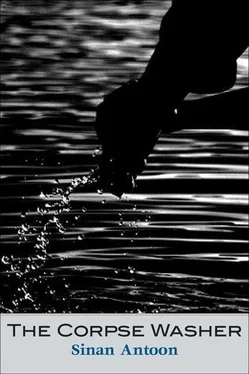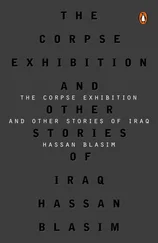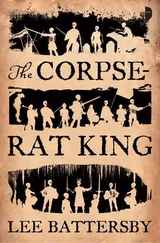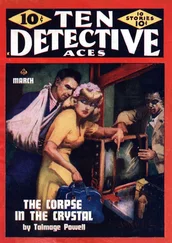There was one page in the book that had quotations by Giacometti. One of them stayed with me. He said that what he’d wanted to sculpt was not man but the shadow he leaves behind.
The first week of my fourth year at the academy I saw Reem sitting on a bench near the theater department all in black and wearing sunglasses. I approached her and said hello. She greeted me amicably but apologized for not recognizing or remembering me. I reminded her of my name and my silly joke about trying to save her from drowning after that exercise and of our short conversation at the cafeteria. I asked her about the black she was wearing. She said that her ex-husband had died two months before. I offered my condolences. She thanked me and smiled, saying that he was an officer and had died on the front line. I mentioned that my brother was a martyr, too. I didn’t want to burden her so I didn’t ask why she’d been away for so long, but I asked whether she was back in school. She nodded with a smile. Death had brought her back to me.
One morning I surprised Reem with a question I’d been meaning to ask but had hesitated to pose: “Did you love him a lot?”
“Who?”
I found it strange that she didn’t realize I meant her ex-husband. “The deceased.”
She turned to me and looked at me with her magic eyes. We were sitting next to each other under the palm tree she loved. Then she looked straight ahead without saying a word. I feared that I’d hurt her feelings or reopened wounds that had yet to heal, so I said “I’m sorry. Didn’t mean to … ”
She smiled and said, “No, it’s not a problem. It’s a sensitive subject. I will answer you when I can trust you more.”
“And when will that be?”
“Don’t rush.”
After that day I was careful not to bring up her marriage again. Two months later we were sitting at the cafeteria of the British Council near the academy. She asked me about my relationship with my father. I told her about my clashes with him, that he was disappointed in me because I had decided not to follow in his footsteps and insisted on studying art, which he thought was a waste of time.
She said that her father never paid any attention to what she did or wanted to do. “I wish he’d insisted I study one thing or even objected to my studying at the academy. I would’ve interpreted that as a sign that he cared or loved me. But he was always busy with his business and I rarely saw him. Only his wife, who was another of his profitable deals, could compete for the attention he usually devoted to his business. He married her after my mother passed away. After moving in with us, she turned my life into hell and fought me in every way possible. So marriage was my only escape.
“I didn’t love my husband, but I hoped that living with him would lead to another kind of love. I’d fallen in love with a young man who lived on our street when I was in high school, but I later realized that it wasn’t a serious or meaningful relationship. We were both young and spoke on the phone a great deal, whispering and whatnot. We met every now and then whenever it was possible. It withered away when he moved with his family to al-Sayyidiyya. It was quite far and he didn’t have a car. Our nocturnal chats became less frequent and the whole thing just died.
“During the summer vacation right before I entered the academy, one of my relatives asked for my hand. I’d seen him two or three times at weddings. He had studied engineering and then became a lieutenant in the Republican Guards. He got two medals for bravery during the war. He’d seen me once leaving high school and offered to drive me home. I thanked him politely but refused his offer. He later confessed that it wasn’t a coincidence at all and that he had approached me so as to test the waters. Although I never believed in traditional marriage, my only goal was to free myself from my stepmother, and I came to the conclusion that I had no choice but to compromise.
“Ayad was handsome. He was pleasant during the initial visits. Throughout our engagement he would come every three weeks during his leaves from the army. He was very gentle and understanding at first and promised that I could complete my studies and be independent. I liked his maturity, especially when I informed him that I didn’t want to have kids until after my studies. He agreed and said that he would want to be in Baghdad, not on the front, when his children were born so he could raise them himself. It seemed that the war would go on for another two or three years anyway.
“Since living alone was impossible financially and socially, I decided that marriage was the best choice among a set of bad options. My father didn’t care that much. He said that Ayad was successful and established financially and that would guarantee me a secure future. I felt he was talking about one of those profitable deals he was so good at. As for my stepmother, she didn’t even bother to hide how happy she was to be getting rid of me.
“The wedding took place at the Sheraton, and our honeymoon was one week at the Habbaniyya Lake Resort. He went back to the front line afterward and I went to our little nest, which he’d bought in Zayyuna, next to the Fashion House. His salary was excellent, but he’d also inherited money from his father, who’d died two years before in a car accident.
“Our problems started during his second leave, when I realized that the polite Ayad was a mountain hiding a volcano. It was very easy for it to pour lava on everything and everyone around. It was never easy to predict what would set the volcano off. The first eruption was because my cooking failed to rise to his standards. I wasn’t a great cook, but I tried earnestly and enlisted the help of my maternal aunt. I hand-copied my grandmother’s famous recipes to secure his satisfaction. He said that even the army food was better than my cooking. I apologized and promised to improve with practice. I had warned him when we were engaged that I was not a good cook, but he’d said that he was used to army food and we’d cook together. His sweet talk during our engagement was like the courting of political parties before they assume power.
“He used to always apologize and shower me with kisses, especially on my hands, after hitting me. He used to buy me gifts and promise that he would never lift his hand against me again and that it was the last time. But every time was the last time. In one of his fits of rage, he broke my arm. The pain was so excruciating he took me to the Tawari’ Hospital at night and told them that I’d tripped and fallen down the stairs. I kept silent, but my tears were obvious. I sensed that the resident doctor suspected my husband’s story, but all he did was look at him suspiciously. I thought about screaming that he had hit me. But who was going to believe that a valiant officer who had been awarded three medals by the president would harm his own wife?
“After that, I decided to move back to my father’s house. Ayad apologized and pleaded, but I’d heard it all before.
“I tried to feel some sadness when Ayad died, but I couldn’t. I was so relieved that I felt guilty for that. My tears at the funeral were genuine, but I was crying for myself and all the years of my life that had died. I visit Ayad’s mother sometimes. She’s a kind person. She knew how cruel he was and understood my suffering. But she still keeps a framed photo of him on her TV: Ayad accepting a medal from Saddam Hussein.”
She was cautious with me at the outset of our friendship. More than once she made me feel that I had to slow down. I learned to be patient, to crawl into her heart instead of storming it impulsively.
Читать дальше












